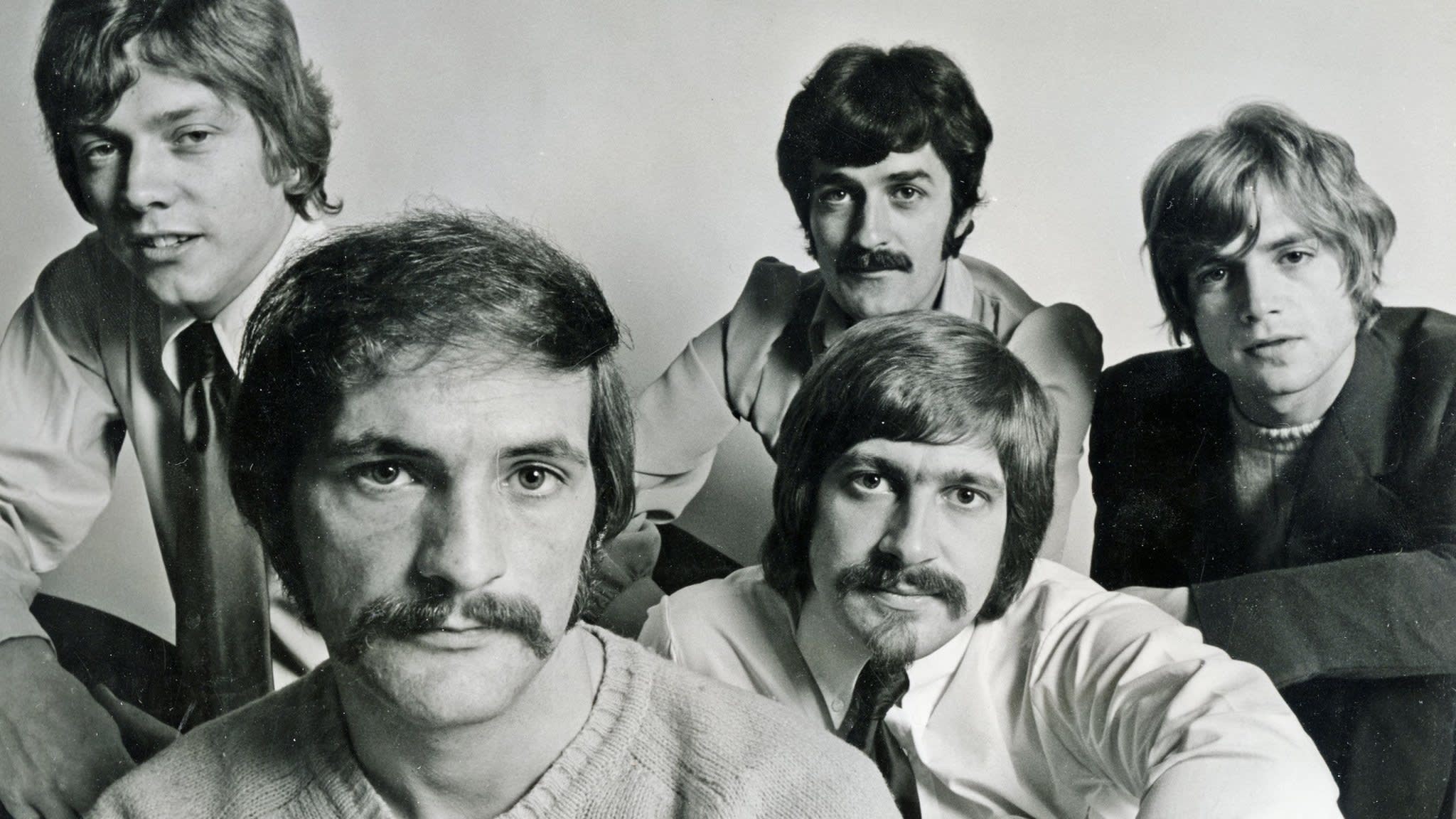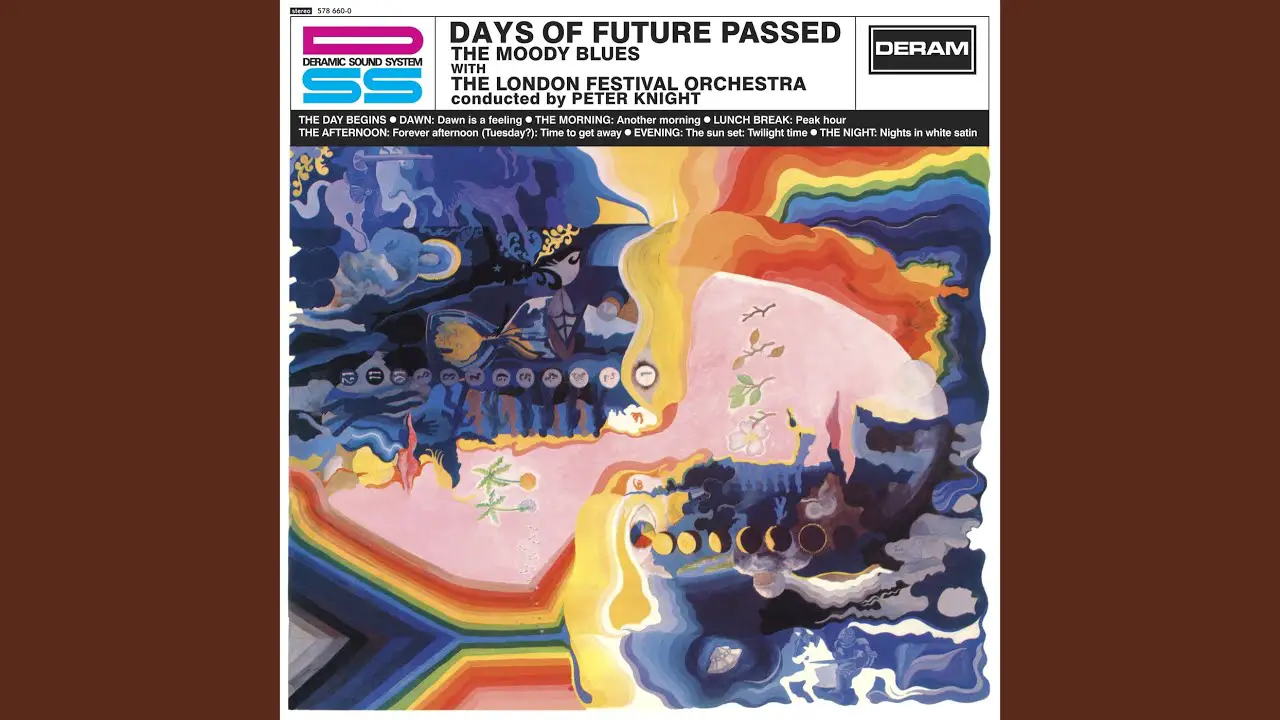Days of Future Passed Songs Ranked
Days of Future Passed is the second album and first concept album by English prog rock band The Moody Blues, released in November 1967 by Deram Records. With its fusion of orchestral and rock elements, it has been cited as one of the first examples of progressive rock. The album was recorded at a time when the Moody Blues were suffering financial difficulties and lack of critical and commercial success. Their parent label, Decca Records offered them a chance to record a stereo LP that combined their music with orchestral interludes. They decided to compose a suite of songs about the life of everyday man, with the group and orchestra mostly playing separately and mixed together. It was a moderate success upon release, but following steady radio airplay, particularly of the hit single “Nights in White Satin”, it became a top ten US hit in 1972. It has since been listed among the most important albums of 1967 by Rolling Stone. Here are all of Days of Future Passed songs ranked.
Don’t miss out on the music of The Moody Blues! Click and enjoy the songs that lift your mood!
7. Lunch Break: Peak Hour
“The song’s title means to many Britons what “rush hour” means to Americans, and the energetic feel of the song matches well with its subject matter. Of all the Moody Blues, Lodge seems like the one who always most enjoyed rocking out; and this song has a fine, down-to-earth quality to it.”
6. The Night: Nights in White Satin
“A classic. Hayward’s deft guitar and rich, emotional vocal works well with Lodge’s contrapuntal bass and Pinder’s Mellotron. A moving flute solo by Thomas adds to the brilliance of this unforgettable love song.”

See more: The Moody Blues Albums Ranked
5. The Morning: Another Morning
“Another orchestral bridge then leades into flautist-vocalist Ray Thomas’s “The Morning: Another Morning.” This cheerful tune, centered around an upbeat flute melody, has more of a pop than a rock feel to it (except for the song’s dynamic middle 8), but with its lyrical references to how “Time seems to stand quite still/In a child’s world, it always will,” it serves its purpose of advancing the album through the next part of its archetypal day.”
4. Evening: The Sun Set: Twilight Time
” The second part of the suite is Thomas’s “Twilight Time,” a direct, piano-based rocker in which Thomas’s low, restrained vocal is well-supported by fine harmonies. It’s a very fine song. I only wish Thomas had written more songs like this, and fewer self-consciously whimsical tunes about hobbits tripping through the meadow and what not.”

3. Dawn: Dawn Is a Feeling
“A hopeful-sounding orchestral interlude segues into the album’s first actual song, “Dawn Is a Feeling.” This song, composed by keyboardist-vocalist Mike Pinder, is sung in alternating movements by Hayward and Pinder. The parts sung by Hayward have that sense of romantic melancholy that has so often characterized his work with the band; the parts sung by Pinder center around a series of descending piano chords that look ahead to much of Pinder’s work from the Moodies’ classic period.”
See more: The Moody Blues Songs Ranked
2. The Afternoon: Forever Afternoon
“A catchy Mellotron melody by Pinder leads into Hayward’s rich, emotional vocals, with Lodge’s energetic, mobile high-register bass providing strong support. A long-held note by Hayward leads the song into a rollicking barrel-house piano interlude by Pinder, as the song changes pace; and a flute solo by Thomas makes a nice contribution as well.”

1. The Day Begins
“The London Festival Orchestra (house orchestra for Decca Records) starts the album off with “The Day Begins,” an instrumental piece that includes leitmotifs from various songs that the listener will later hear. “The Day Begins” also features the first of drummer Graeme Edge’s spoken-word poems that would become a famous, or notorious, feature on the albums of the Moody Blues’ classic period. It’s not particularly distinguished as a poem — “Brave Helios, wake up your steeds/Bring the warmth the countryside needs” — but it was a bold expedient for its time, and Edge’s spoken-word poetry would grow in complexity and nuance over time.

